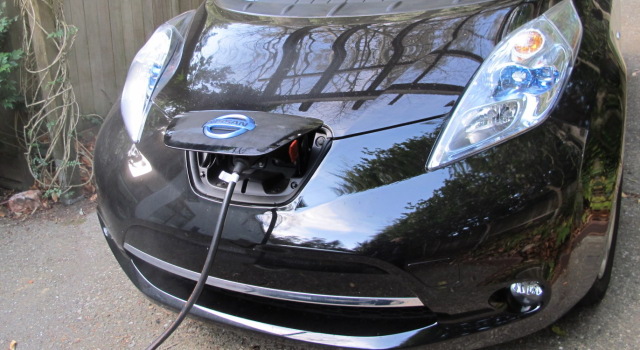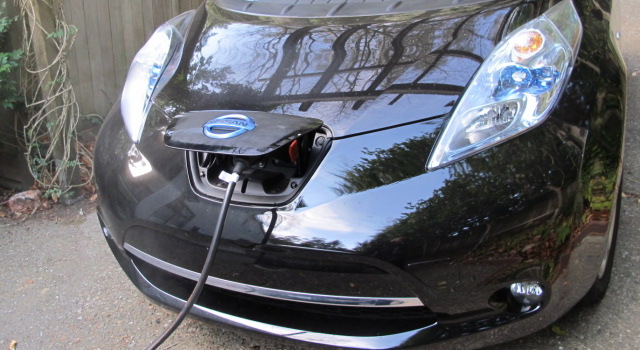Just because an electric vehicle (EV) lacks a tail pipe, it doesn’t mean it’s always cleaner than other fuel efficient cars. According to a new report from the Union of Concerned Scientists, where you live may determine how clean your electric car is.
The new report, called "State of Charge," looks at the entire life cycle of EV emissions that includes energy inputs from start to finish, not just during drive time. In other words, what kind of emissions do EVs create from charging on an electric grid and how does the cost of that charging compare to filling up a gasoline-powered vehicle?
The nonprofit group of scientists has found that the greenhouse gases emitted from EVs depends on the sources of electricity. For example, California does not rely on coal fired power plants and the state has aggressive renewable energy goals. According to the report, charging (not driving) an all-electric car in the golden state results in global warming emissions equivalent to a car with a mileage rating of 80 mpg. But in several states, such as the mid-west, plug-in drivers charge their cars from electricity generated by burning coal or natural gas. There, the report has found that charging an EV may result in emissions similar to a car with a mileage rating between 31mpg. to 40 mpg.
Not surprisingly, the report finds that no matter where one lives in the United States, electric cars are a good choice for reducing global warming emissions and saving money on fueling up. The authors also note that projected increases in solar and wind on the grid will mean that the global warming emissions from electric vehicles in those areas will decrease over time. Also, what time of day you charge matters. Charging at night is not only cheaper, it has less of an impact on the grid. Check out a great map from CNET on how EV emissions compare to gasoline emissions in your region.

